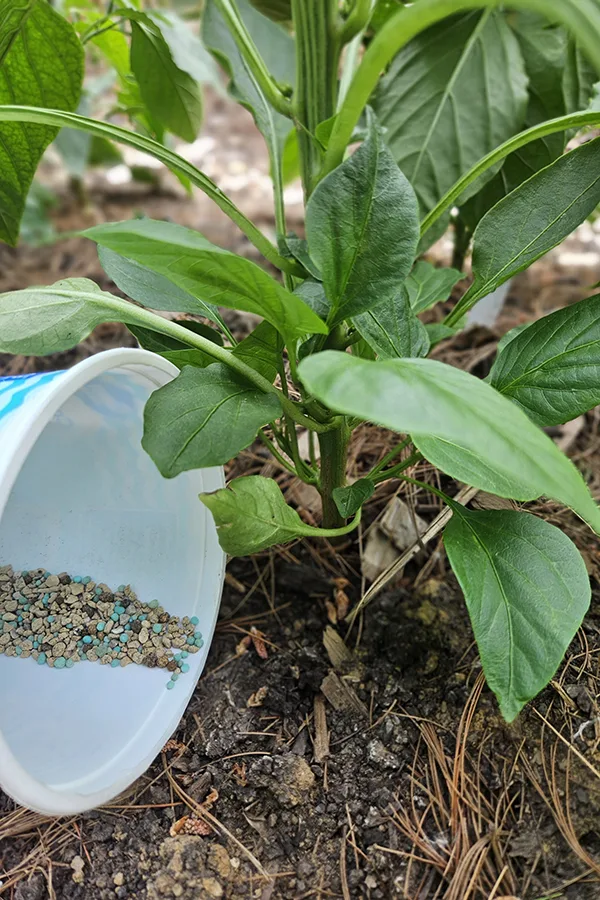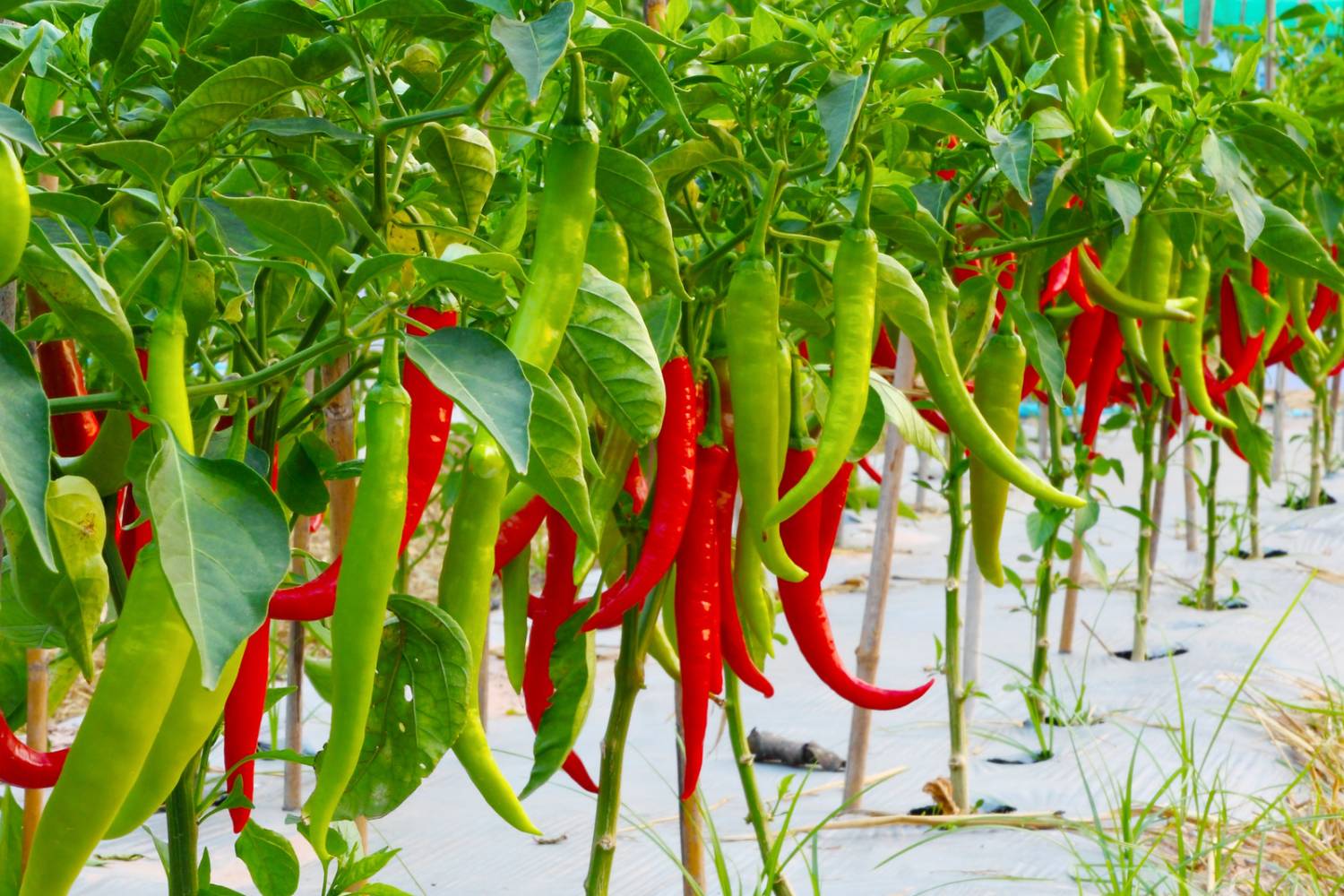Reveal the Best Fertilizers for Peppers: Essential Nutrients for Flourishing Plants
Reveal the Best Fertilizers for Peppers: Essential Nutrients for Flourishing Plants
Blog Article
Organic Vs. Synthetic Fertilizers: Which Is Best for Nurturing Healthy And Balanced Pepper Plants?
In the world of supporting healthy and balanced pepper plants, the choice in between natural and artificial fertilizers stands as an essential decision with significant ramifications. While both choices aim to offer vital nutrients to sustain plant development, the subtleties of their effect on the soil, plant health, and the setting trigger a discussion that mirrors throughout the horticulture area. Comprehending the unique advantages and possible challenges of each plant food kind is important for pepper growers looking for to enhance their yields while maintaining a lasting and eco-conscious method.
Advantages of Organic Plant Foods
Organic fertilizers supply an environmentally-friendly and sustainable method to beneficial pepper plants, supplying vital nutrients without making use of artificial chemicals. These natural plant foods are stemmed from organic resources such as compost, manure, bone dish, and algae, promoting dirt health and wellness and biodiversity. Unlike synthetic plant foods, natural options release nutrients gradually, ensuring a balanced and consistent supply for pepper plants to flourish.
One substantial benefit of natural fertilizers is their ability to improve dirt structure and water retention. By improving soil health, natural fertilizers advertise useful microbial task, which helps in nutrient uptake by pepper plants. In addition, natural fertilizers reduce the risk of chemical run-off, protecting water sources from pollution and securing the atmosphere.
Furthermore, natural fertilizers add to long-term soil fertility by promoting the development of beneficial soil organisms. These microorganisms aid damage down raw material, releasing nutrients in a type that is conveniently obtainable to pepper plants. best fertilizers for peppers. By fostering a healthy soil environment, natural plant foods sustain lasting pepper cultivation practices that benefit both plants and the atmosphere
Disadvantages of Artificial Plant Foods
Synthetic plant foods, in comparison to their natural counterparts, present different downsides when made use of to nurture pepper plants, influencing both plant wellness and ecological sustainability. One significant downside of artificial plant foods is their propensity to seep nutrients from the soil rapidly.
Furthermore, the overuse of synthetic plant foods can contribute to water contamination. Excess fertilizers not taken in by plants can get rid of right into water bodies, bring about eutrophication, where algae flowers deplete oxygen levels in the water, damaging water life. Synthetic plant foods are normally acquired from non-renewable sources, such as fossil fuels, adding to carbon discharges and environmental destruction during their manufacturing.
Nutrient Absorption Comparison
Reliable nutrient absorption plays a critical function in the overall wellness and growth of pepper plants. When contrasting organic and synthetic fertilizers in regards to nutrient absorption, natural fertilizers have the benefit of providing a much more well balanced and slow-release source of nutrients (best fertilizers for peppers). Organic fertilizers have a variety of macro and micronutrients that are not only valuable for the plants yet also advertise healthy and balanced dirt microbial activity, which helps in nutrient uptake. On the various other hand, artificial fertilizers commonly provide a quick release of nutrients, which can cause seeping and runoff, leading to reduced nutrient absorption prices by the plants.
Additionally, natural plant foods boost dirt structure and water retention capability, permitting pepper plants to accessibility nutrients much more effectively. This enhanced dirt top quality facilitates root advancement, enabling better nutrient absorption. Synthetic fertilizers, although at first improving plant development as a result of their high nutrient focus, might hinder long-term nutrient absorption by degrading soil health and wellness gradually.
Ecological Influence Considerations

On the various other hand, synthetic fertilizers, although usually even more concentrated and instantly readily available to plants, can have damaging Check Out Your URL effects on the setting if not used appropriately (best fertilizers for peppers). Their production calls for high energy inputs, resulting in greenhouse gas exhausts and contributing to environment adjustment. Furthermore, the drainage of excess synthetic plant find out this here foods can infect water sources, leading to eutrophication and damaging water communities.
Finest Plant Food Practices for Peppers
When fertilizing pepper plants, enhancing nutrient uptake and minimizing environmental influence are key considerations. To accomplish this, it is vital to comply with finest plant food practices tailored to the certain demands of pepper plants. One essential method is to execute a dirt test before applying any type of fertilizers. This test can figure out the pH degree of the dirt and recognize any kind of nutrient shortages, leading you in picking one of the most suitable fertilizer solution.
An additional vital technique is to fertilize pepper plants at the best time. Generally, peppers gain from receiving plant food at growing and after that once more when they begin to blossom. Over-fertilizing can cause nutrition discrepancies and hurt the plants, so it is crucial to adhere to advised application prices.
In addition, selecting a balanced fertilizer with an NPK proportion that fits pepper plants' demands is essential. Organic fertilizers, such as compost or manure, can be excellent selections as they launch nutrients gradually and enhance soil structure with time. Nonetheless, artificial fertilizers can provide a fast nutrient increase when required. Inevitably, integrating artificial and organic fertilizers judiciously can aid support healthy and balanced pepper plants while reducing environmental influence.
Verdict

Organic fertilizers supply a sustainable and environmentally-friendly approach to beneficial pepper plants, giving vital nutrients without the usage of synthetic chemicals. Unlike synthetic plant foods, organic choices launch nutrients slowly, making sure a well balanced and steady supply for pepper plants to prosper.
Artificial fertilizers, in contrast to their organic equivalents, pose different downsides when made use of to nourish pepper plants, impacting both plant health and wellness and ecological sustainability. When contrasting synthetic and natural plant foods in terms of nutrient absorption, organic fertilizers have the advantage of supplying an extra well balanced and slow-release source of nutrients.Additionally, organic plant foods boost soil structure and water retention capability, permitting pepper plants to accessibility nutrients more efficiently.
Report this page